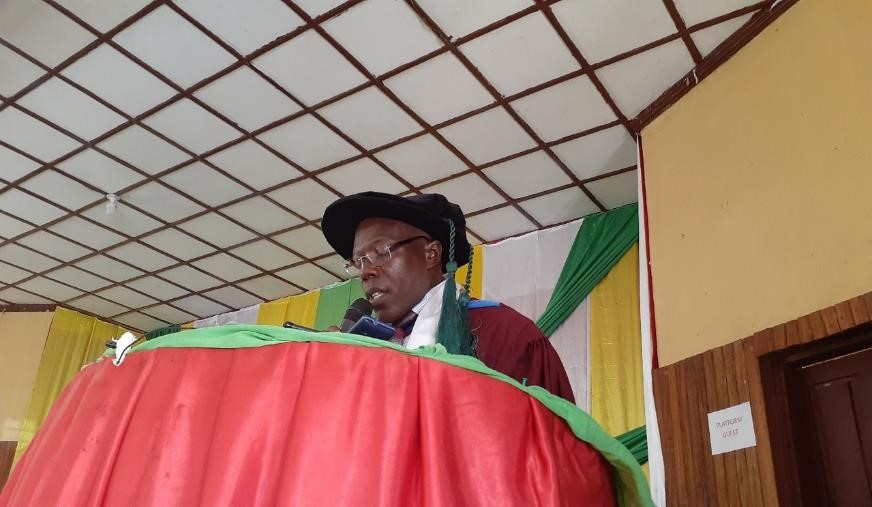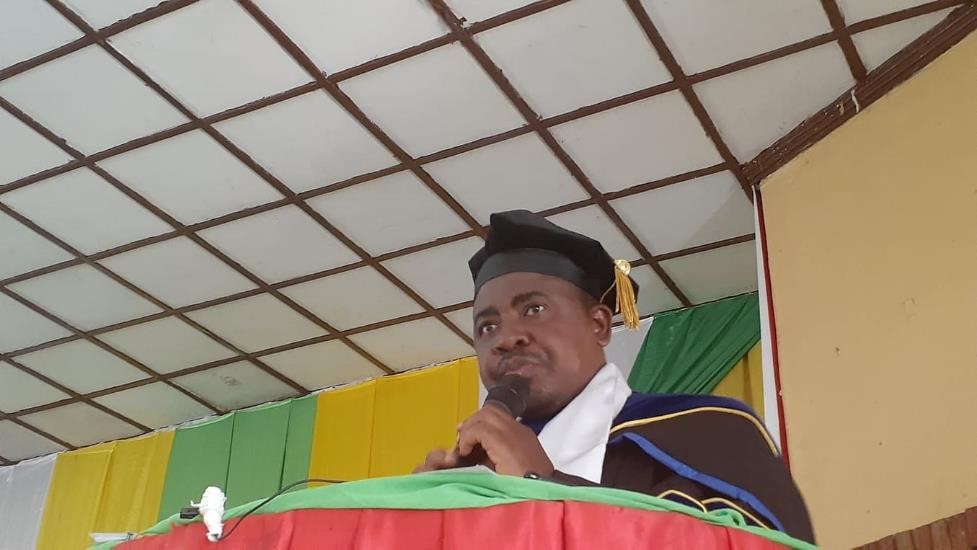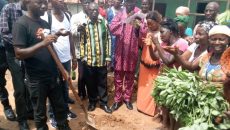GBARNGA, Bong – The International University of the Center for Environmental and Public Health Research Inc., also known as CEPRES has conferred undergraduate degrees on 43 students while certificating more than 25 others at the university’s first graduation ceremony held in Gbarnga, Bong.
The event occurred on Saturday, Feb. 9. Established in 2014 by former agriculture minister Mogana Flomo, CEPRES International University has campuses in Gbarnga and Monrovia and offers undergraduates degrees in community and public health, epidemiology, applied statistics, medical laboratory technology, accounting, and education. It also awards certificates in disaster management, procurement, waste management, project planning, and management.
The dean and professor of epidemiology and global health at the Kwame Nkrumah University of Science and Technology in Ghana, Ellis Owusu-Dabo, was the keynote speaker at the commencement.
In his keynote address, Owusu-Dabo called for increased collaboration between African universities, governments, and societies if the narratives about Africa as an underdeveloped continent must be reversed. He argued that it is only through sustained investments in education – particularly science and technology – that such a reversal is possible.

Ellis Owusu-Dabo, commencement speaker. Photo: Moses Bailey.
A key impediment to Africa’s progress, Owusu-Dabo observed, has been the crucial lack of innovation and entrepreneurial skills needed to tackle Africa’s challenges head-on. These, he said, require urgent attention. Equally important, according to him, was the need to upgrade the curricula of universities across the continent in order to emphasize research, creativity, and innovation as problem-solving tools.
“Let’s have a curriculum that is practical, systematically collated, and innovative in order to address our problems,†Owusu-Dabo said.
He finally congratulated the graduating classes and challenged them to use their education to positively impact their countrymen and serve humanity.
Of the 43 students who received degrees, 9 were women. At least one of the graduating females, Susan Sorlee, is an employee of the Ministry of Health working as an environmental health technician. She earned a bachelor’s degree in community health.
Sorlee says her education in community health will further enhance her effectiveness on the job, expressing pride in her service to Liberians and humanity in the area of disease prevention and control. Speaking to The Bush Chicken following her graduation, she encouraged young women coming out of high schools to seek advance opportunities and enroll at CEPRES.

Susan Sorlee graduated with a Bachelor of Science degree in community health. Photo:Moses Bailey.
Another graduate, Wilfred Taikerweyah, who earned a bachelor of science degree in epidemiology and biostatistics, was looking forward to using his new knowledge to intervene in Liberia’s fight against diseases, especially new epidemics. Currently, Tarkerweyah volunteers for the Department of Epidemiology at the Ministry of Agriculture.

Wilfred Taikerweyah earned a Bachelor of Science degree in epidemiology and biostatistics. Photo: Moses Bailey.
Graduation day is always a moment for celebration. But for Taikerweyah and many of his fellow graduates, the celebration was not with sacrifices and overcoming many challenges. Many of the graduates expressed their desire to pursue further studies and seek advanced and expert knowledge in their chosen fields.
CEPRES itself, as an initiative, overcame many challenges in order to succeed. Following its conception by Flomo while studying for his Ph.D. at the Kwame Nkrumah University of Science and Technology, the idea could not evolve without Flomo forging important networks and partnerships.
“I was assigned to Dr. Ellis Owusu-Dabo, the then-director of the Kumasi Center for Collaborative Research,†Flomo said during the convocation. “Throughout my mentorship, I admired the structure of the Kumasi Center for Collaborative Research, and I planned to open [a] similar institution in Liberia.â€

Mogana Flomo, founder and first president, CEPRES International University. Photo: Moses Bailey.
He thanked Owusu-Dabo for the motivation and hoped his dream of establishing a public health research and environmental science institution in Liberia would also become a reality.
Flomo then called upon Liberians, especially citizens of Bong, to rally together in their support for the institution.
Featured photo by Moses Bailey



